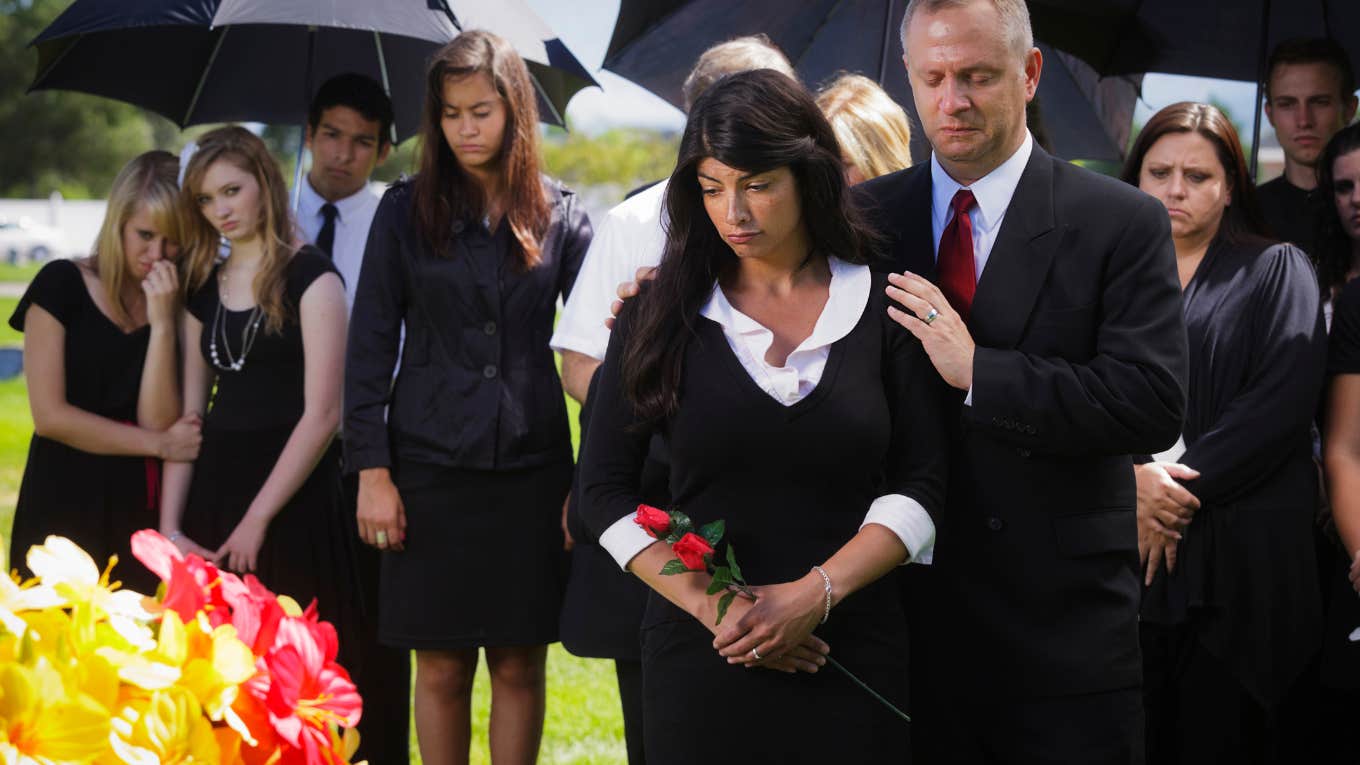Woman Refuses To Attend Her Fiancé's Father's Funeral Over The Holidays Because She Disagrees With Their Religious Practices
If their differing religions are causing this much trouble over a funeral, how is their interfaith marriage supposed to work?
 RichLegg / Canva Pro
RichLegg / Canva Pro A Christian woman online has drawn heated criticism for the way she handled a conflict with her Muslim fiancé when their differing faiths came into play, and it's left many wondering how their interfaith marriage can succeed given her seeming rigidity.
A woman refused to attend her fiancé's father's funeral over religious concerns.
Religion touches on some of the most deeply held beliefs and traditions people can have, which is why nearly all experts agree that compromise is the most important component of a mixed-religion partnership.
A woman on Reddit seemed to have missed that memo, however. In a post, she wrote that while her Muslim husband isn't particularly religious, she is devout in her Christian faith.
That difference came between them over the holidays when his father passed away, in what was likely the first test of their interfaith relationship.
She refused to attend the funeral because she would have to wear a hijab at the service.
The hijab is the traditional head covering many Muslim women wear which covers their hair and neck, and it is considered respectful for women to wear a head covering in a Muslim mosque even if they do not follow the faith.
This immediately caused tension between the woman and her fiancé when his father passed just one day into their Christmas trip to her family's house in the South.
"A few hours before we were going to fly out [to the funeral," she wrote, "he informs me that I'll have to wear a hijab to enter the mosque for the service, and would not be allowed to go to the graveyard either. I did not feel comfortable doing this, so I told him I would rather not go."
Given that she couldn't attend the burial in any case, she figured it made more sense to stay with her family and celebrate Christmas as they originally planned to do. Her parents agreed, and her fiancé "seemed okay with the decision."
Her fiancé did not return from the trip as scheduled, and his family was offended that she refused to attend the funeral.
There was reason to believe her fiancé wasn't as okay with her choice as he let on. Before leaving, he attempted to strike a compromise by asking "if I couldn't just come and not attend the service." She stuck to her guns, however.
Her fiancé also did not return to her parents' house for their scheduled New Year's plans, letting her know on the 29th that he was staying with family through the holiday.
Shortly thereafter, she got a message from his sister, to whom she's very close, confronting her about her decision and saying she should at least pay him back for the very expensive funeral flight on Christmas Eve.
She insisted she did nothing wrong however and her parents felt it was not only more important that she spend Christmas with them, but that "it was wrong of him to completely abandon me and our plans for New Year's." Only her sister felt she handled this poorly, saying she should have gone to support him.
Some studies have shown that interfaith marriages are more likely to end in divorce, especially when one party is a Christian.
Data on the subject is mostly old and inconclusive, likely, in part, because interfaith marriages are far more common nowadays than they ever used to be, and Americans in general have become less religious over the years.
But some studies on the matter have shown that interfaith marriages are generally more likely to end in divorce, with marriages in which one party is an Evangelical Christian having the highest divorce rate. That is, of course, a branch of Christianity not exactly known for compromise.
What exactly this woman's beliefs are isn't known, of course, but her lack of willingness to meet her fiancé halfway in his time of grief struck many online as bizarre and unkind and she received waves of pushback from her fellow Redditors.
In defending herself, she revealed further details that made her side of the story even more difficult to square, particularly the fact that she and her family asked her fiancé's family to delay the funeral until after the holidays.
That's a wildly presumptuous ask on its face, but even more so given that Islamic rules mandate that burials be held immediately, typically within three days.
She also insisted that her objection to wearing the hijab wasn't strictly religious, but rather that "it just felt wrong and it made me feel uncomfortable to participate in something I don't believe in."
Everyone's entitled to their convictions, of course, but marriage is ultimately about mutual support and commitment. If she disagreed with her husband's religion so intensely that simply wearing a piece of fabric on her head in order to support him in his grief was too much to ask, well, it might be long past time to re-evaluate her priorities before walking down the aisle.
John Sundholm is a news and entertainment writer who covers pop culture, social justice, and human interest topics.
